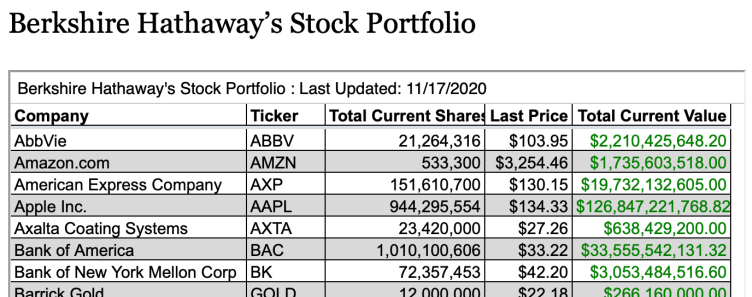
While recessions can be hard times, some professionals and businesses thrive during a downturn. Recessions do not affect all businesses equally. Some companies benefit from the drop in consumer spending on their products. Companies that provide high-demand goods such as luxury items during recessions often gain. They can also benefit from the increased demand for cheap alternatives to big ticket items.
Discount retailers
Discount retailers often do very well during a recession. This is because basic necessities like food, clothing and healthcare are always in high demand. They are a great investment because these items are more affordable during a recession. A recession can last anywhere from eighteen to eighteen weeks. The government considers an economy in recession if it has two consecutive quarters with negative GDP growth.
Consumers' incomes are reduced when the economy is in recession. This means that they will be less inclined to spend on luxury goods. This could mean that consumers may buy less or substitute cheaper goods. But there are some things that consumers simply cannot afford to eliminate, such as videogames. These items will be purchased if the consumer cannot afford to purchase them. If so, they will find a less expensive alternative. Discount retailers and health care companies do well during a recession because they can offer these goods at prices that are affordable.

PepsiCo
PepsiCo performs better in times of recession than its competitors. PepsiCo avoids wholesale price revisions, does not lose customers to competitors, invests more into marketing materials, pointofsale materials, and digital media. The company also focuses its marketing efforts on a younger audience that lives for today.
PepsiCo has a strong record of being able to weather recessions. Even though earnings per share declined slightly in the Great Recession in 2007-09 and 2009, revenue increased by 20% in 2009. Its profits grew even after the recession and it predicted strong growth in 2020, 2021 and beyond. Its credit rating and financial strength have kept the company out of recessions. The A+ credit rating continues to be maintained.
Johnson & Johnson
Although stocks are susceptible to falling in recessions, Johnson & Johnson is able maintain growth even in tough times. The company's products are essential to people's lives and therefore demand remains high. It also boasts a solid credit rating and a proven track record. This combination makes it a strong choice for investors. The following are reasons Johnson & Johnson thrives in a downturn:
First, its diverse business model may explain the company's strong performance during a recession. Besides pharmaceuticals and medical devices, the company's portfolio also includes over-the-counter medicines and beauty products. As a result, a diversified business model allows it to compensate for its weaker segments.

Smucker's
Smucker’s has a rich history of more than 120 years. This makes it a solid long-term investment. It has evolved over the years to meet changing consumer preferences and tastes. Today, it is embarking in a new pivot. It will refocus on two high growth sectors: premium petfood and coffee. While this pivot could take years, it will likely result in steady dividend growth for many years.
Analysts rate Smucker shares to be a buy, but Goldman Sachs recently downgraded them to a sell. Although the company's revenue has increased, sales growth is limited due to inflation and Walmart's purchasing power. Its Uncrustables and coffee businesses are the company's main growth areas.
FAQ
Who can trade in stock markets?
The answer is yes. But not all people are equal in this world. Some have greater skills and knowledge than others. They should be rewarded.
However, there are other factors that can determine whether or not a person succeeds in trading stocks. For example, if you don't know how to read financial reports, you won't be able to make any decisions based on them.
These reports are not for you unless you know how to interpret them. Each number must be understood. You should be able understand and interpret each number correctly.
If you do this, you'll be able to spot trends and patterns in the data. This will allow you to decide when to sell or buy shares.
And if you're lucky enough, you might become rich from doing this.
How does the stock market work?
You are purchasing ownership rights to a portion of the company when you purchase a share of stock. A shareholder has certain rights over the company. He/she has the right to vote on major resolutions and policies. He/she can seek compensation for the damages caused by company. He/she may also sue for breach of contract.
A company can't issue more shares than the total assets and liabilities it has. This is called capital adequacy.
Companies with high capital adequacy rates are considered safe. Low ratios make it risky to invest in.
What is the purpose of the Securities and Exchange Commission
The SEC regulates securities exchanges, broker-dealers, investment companies, and other entities involved in the distribution of securities. It enforces federal securities regulations.
How do I choose a good investment company?
Look for one that charges competitive fees, offers high-quality management and has a diverse portfolio. Fees are typically charged based on the type of security held in your account. Some companies have no charges for holding cash. Others charge a flat fee each year, regardless how much you deposit. Some companies charge a percentage from your total assets.
Also, find out about their past performance records. A company with a poor track record may not be suitable for your needs. Avoid low net asset value and volatile NAV companies.
You should also check their investment philosophy. In order to get higher returns, an investment company must be willing to take more risks. If they are not willing to take on risks, they might not be able achieve your expectations.
What is security in a stock?
Security is an investment instrument whose value depends on another company. It may be issued either by a corporation (e.g. stocks), government (e.g. bond), or any other entity (e.g. preferred stock). If the asset's value falls, the issuer will pay shareholders dividends, repay creditors' debts, or return capital.
What are the advantages to owning stocks?
Stocks are less volatile than bonds. The stock market will suffer if a company goes bust.
If a company grows, the share price will go up.
For capital raising, companies will often issue new shares. This allows investors to purchase additional shares in the company.
To borrow money, companies can use debt finance. This gives them cheap credit and allows them grow faster.
People will purchase a product that is good if it's a quality product. The stock will become more expensive as there is more demand.
Stock prices should rise as long as the company produces products people want.
Statistics
- Ratchet down that 10% if you don't yet have a healthy emergency fund and 10% to 15% of your income funneled into a retirement savings account. (nerdwallet.com)
- For instance, an individual or entity that owns 100,000 shares of a company with one million outstanding shares would have a 10% ownership stake. (investopedia.com)
- "If all of your money's in one stock, you could potentially lose 50% of it overnight," Moore says. (nerdwallet.com)
- Even if you find talent for trading stocks, allocating more than 10% of your portfolio to an individual stock can expose your savings to too much volatility. (nerdwallet.com)
External Links
How To
How to Invest Online in Stock Market
Investing in stocks is one way to make money in the stock market. There are many methods to invest in stocks. These include mutual funds or exchange-traded fund (ETFs), hedge money, and others. The best investment strategy depends on your investment goals, risk tolerance, personal investment style, overall market knowledge, and financial goals.
Understanding the market is key to success in the stock market. This includes understanding the different investment options, their risks and the potential benefits. Once you are clear about what you want, you can then start to determine which type of investment is best for you.
There are three main types of investments: equity and fixed income. Equity refers to ownership shares of companies. Fixed income can be defined as debt instruments such bonds and Treasury bills. Alternatives include commodities, currencies and real estate. Venture capital is also available. Each option has its pros and cons so you can decide which one suits you best.
Two broad strategies are available once you've decided on the type of investment that you want. One strategy is called "buy-and-hold." You purchase a portion of the security and don't let go until you die or retire. Diversification is the second strategy. It involves purchasing securities from multiple classes. If you purchased 10% of Apple or Microsoft, and General Motors respectively, you could diversify your portfolio into three different industries. The best way to get exposure to all sectors of an economy is by purchasing multiple investments. It helps protect against losses in one sector because you still own something else in another sector.
Another important aspect of investing is risk management. Risk management can help you control volatility in your portfolio. If you are only willing to take on 1% risk, you can choose a low-risk investment fund. However, if a 5% risk is acceptable, you might choose a higher-risk option.
Learn how to manage money to be a successful investor. Planning for the future is key to managing your money. Your short-term, medium-term, and long-term goals should all be covered in a good plan. Sticking to your plan is key! You shouldn't be distracted by market fluctuations. Your wealth will grow if you stick to your plan.